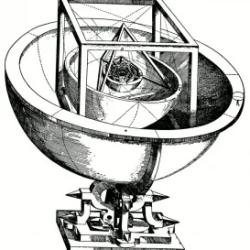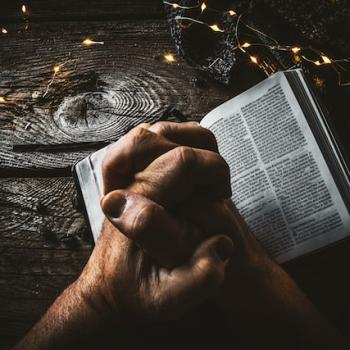In order to live to God and His purposes, I must first die to myself and my own. In order to be crucified with Christ, three "nails" must pierce my soul to the point of death.
The nail of forgiveness
We are never more like God than when we forgive; and never more unlike Him than when we won't. It takes nothing less than divine grace to help us forgive the people we find the most difficult to forgive. In order to forgive, I have found it essential to identify with this moment in Jesus' life, and to ask myself: Who could be harder to forgive than the person driving a nail into Christ's innocent soul? If Jesus could forgive them, then surely I can forgive..."
Jesus' prayer, "Father, forgive them for they do not know what they are doing," has on many occasions helped me move toward forgiving others. When I am offended my natural instinct is to write the offender off. I want to build a long legal defense against them and seal it, case closed. William Ward summed it up well: "We are most like beasts when we kill. We are most like men when we judge. We are most like God when we forgive."
Jesus' prayer looked beyond the individual offense and considered the heart, the soul and the need of the offender. People who pour out anger are usually the ones who have had it poured out upon them. Gossiping souls have usually been exposed to a steady diet of gossip. This doesn't make it right, but it does bring something essential to forgiveness: A new perspective; one that looks right through the offense and into the heart of the offender. As Archibald Hart says, "Forgiveness is surrendering my right to hurt you for hurting me."
The nail of mystery
Jesus spent the last three hours on the cross in absolute darkness. When Jesus asked the question of His Heavenly Father—"My God, My God, why have you forsaken me?"—we never read of Him receiving an answer.
Questions fill our lives, questions for which we often struggle to find answers: What is the reason for this obstacle in my way? Why did I get laid off from work? Why hasn't my prayer been answered yet?
The reason is mystery. In the Information Age, one of the most difficult things for us to accept is that we don't have all of the answers. God possesses something we do not—omniscience. He knows everything about you and me, from the first chapter to the last.
We do not know if Jesus ever received an answer from the Father for His haunting question. There is something perhaps more significant, however. At the darkest hours of the cross, when Jesus felt alone and without God in this world, He had fully and finally found himself identified with humankind in all of humanity's lost-ness, loneliness and separation from God.
God never rebuked Jesus for expressing His anguish of soul, or for asking such a question. Jesus struggled on the cross, but His struggle was toward God and not away from Him; there is no sin in that. Sometimes the challenges and "crosses" of our lives raise questions that haunt us to the core.But Jesus knew the secret to navigating the mysteries (and hardships) of life—trust. He looked beyond the present crisis and trusted in a Father who can use everything in our lives—the blessings and the struggles—to work His greater purpose.
The nail of surrender
Jesus' third prayer from the cross reveals a wonderful attitude about death. Instead of fearing death and its darkness, Jesus committed His spirit into the safe keeping of His Heavenly Father. At the cross His spirit faced things too terrible for us to conceive. But Jesus had a secret: He did not face them alone. Even when He felt alone, He was not. Though His soul felt the sting of separation, His will remained fastened with faith. When His spirit was overwhelmed even to the point of death, He chose to commit His spirit to the Father.
I have often found great comfort in "committing" whatever I am facing to the Lord. When I find myself overwhelmed by the responsibilities of parenting in the 21st century I can say, "Father, into Your hands I commit my children." When my work schedule has me backed into a corner, I say, "Father, into Your hands I commit my calendar." The apostle Paul clearly was in the habit of committing his struggles to the Lord, for he affirmed, "I know whom I have believed, and am persuaded that He is able to keep what I have committed to Him until that Day" (2 Timothy 1:12, NKJV).
Jesus ID
On the cross Jesus completely identified with us and with our needs—that's what the Savior of the world does. Now He calls us to identify with Him in His life, His death and His resurrection—that's what a follower of Christ does. To have the right Easter I.D. we must identify with Jesus on the cross. Too often Christians hurry past the Cross and rush to the Resurrection. That's understandable, but regrettable. The Resurrection represents the victory, and all of us love the exhilaration of a victory. But there is so much to consider and experience at the Cross. So much we cannot afford to miss. Unless we look long enough at the Cross, the Resurrection will never mean nearly as much to us as it did to Christ.
Editorial Note: The next installment in this three-part series will appear on Thursday, March 29, 2012.





